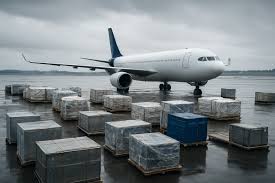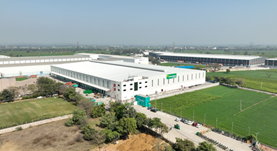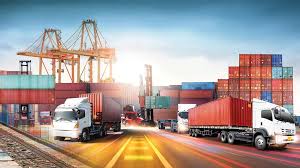The logistics industry is rapidly evolving due to advancements in automation and technology. Recent developments highlight a significant shift in job roles, with manual tasks increasingly being automated. This transformation demands new skillsets, including proficiency in logistics software, data analysis, and problem-solving alongside intelligent machines. Emerging technologies such as AI and IoT are creating new specializations and reshaping traditional roles. Companies are investing in upskilling their workforce to adapt to these changes, focusing on continuous learning and technological proficiency.
In this article, we gather insights from industry experts on how automation is affecting careers, the challenges and opportunities it presents, and the strategies being employed to prepare the workforce for a tech-driven future.
Nitin O. Mahipal, CEO and MD of Mega Pack and Carry
Logistics companies should encourage constant learning and experimentation to develop a culture of innovation and technological adaptability. They should ensure their staff members have access to training programs and promote candid communication. Recognizing and promoting creative solutions is crucial. These companies should implement cross-functional teams to foster diversity of thought and creativity. As leaders, they should promote a forward-thinking attitude by investing in state-of-the-art technologies and fostering a flexible environment that can quickly adjust to changes. By keeping a close eye on market developments and conducting routine process reviews, logistics companies can stay innovative and competitive.

Logistics is evolving from manual labor to tech-driven, analytical roles that leverage data, software, and automation. This shift highlights strategic oversight, robotics, AI management, and process optimization, driving productivity and innovation. Logistics professionals are split into two groups: those managing daily operations and those overseeing them. While daily managers ensure timely deliveries, they often lack exposure to advanced tools. To excel, hiring experienced professionals and training them with cutting-edge technology is essential. It is important to champion a culture of continuous improvement through tech training, setting a standard for excellence, and driving the future of logistics.
Prof. (Dr.) Manoj Choudhary, Vice-Chancellor, Gati Shakti Vishwavidyalaya
Digital technologies have emerged as important facilitators for sustainable supply chain management in the quickly changing business environment. Technologies such as IoT, blockchain, and AI are likely to improve supply chain operations while boosting sustainability. Leveraging data analytics and predictive modeling will help achieve more accurate demand forecasting.

The transformation of the logistics and supply chain industry through Logistics 4.0 will likely occur by harnessing big data analytics for optimization, automation, and robotics in logistics operations, blockchain technology for enhanced transparency, and smart sensors for real-time asset tracking. Human-robot collaboration will enhance logistics performance. The Internet of Things (IoT) and smart warehousing are set to improve inventory management, raising overall supply chain efficiency. Further, machine vision for traceability and 3D smart sensors in packaging will lead to logistics excellence.
With the rising demand for practical skills in the job market, which is set to leverage the above-mentioned new technologies, the significance of hands-on learning in preparing professionals for real-life crises cannot be overstated.
The logistics industry is rapidly evolving, and therefore there will be significantly more opportunities for professionals with the right skills and a positive attitude. “Survival of the Fittest” theory tells us that only those most responsive to change shall survive (and thrive). We need to embrace changes due to advanced technologies and their impact on the business landscape and be in constant process of “reskilling and upskilling” ourselves. Fortunately, with technology-enabled learning becoming more common, affordable, and convenient, it is more a matter of “will” than “how.”.
Raman Kaul, Chief Operating Officer, Star Worldwide Group
Logistics in India is still evolving, and it is crucial to foster a culture of innovation and implementation to stay ahead in today’s competitive and rapidly changing business environment. Young minds need engagement and collaboration in the workplace, with their suggestions being heard in an inclusive environment where they feel respected and motivated. Work should be rewarded, and employees should be incentivized so they can contribute their best. Organizations must focus on enhancing their technical skills and personal development so that employees feel secure and gain a sense of belonging. A healthy organization celebrates success together and learns from failures; this is how innovation and collaboration improve and create a well-cultured firm.

Automation is beneficial for any organization, as it eliminates inefficiencies and improves the bottom line. A well-skilled logistics professional these days requires a good blend of technical skills and field experience to adapt to an automated world of logistics. As automation gains momentum across supply chains, job descriptions for logisticians are also being redesigned to meet new requirements. Imagine a logistician working on multiple spreadsheets who doesn’t know how to create a Power BI dashboard, or a warehouse in-charge struggling to manage robots and advanced MHEs for picking and putaway. Gone are the days when data entry was done manually. With process automation, routine tasks like data entry, billing, and documentation are now automated, improving overall manpower productivity.











